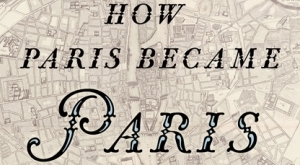A college application carries not the slightest fraction of the gravity of a life sentence. Even so, whenever I speak to students about college essays, I implore them to interrogate themselves, not as suspects but as witnesses. Witnesses to their own lives.
Transit Branding’s Virtuous Cycle
If a beer company can fool the public into throwing away its money on the same old product, then aren’t transit agencies doing the very same thing when they promoting and rebrand themselves?
Smart Branding Attracts the Masses to Mass Transit
Today, transit agencies are abandoning the passive approach to ridership. A confluence of design technologies, communication technologies, new trends in urban development and—perhaps most importantly—a cultural shift among young, smartphone-wielding city-dwellers has led to a new, more sanguine approach to the promotion of transit.
How College Applicants Can Go Beyond ‘Show Don’t Tell’
Analysis entails a discussion of reasons, consequences, processes, and connections to meaningful ideas.
The Dark Side of Environmental Quality
The trillions of points of light in the true night sky are no match for the mere billions on the ground. You know the culprits: streetlights; parking lots; gas stations; billboards; preening McMansions; “security” lighting; athletic fields; headlights….and on and on. It all piles up in icteritious “domes” that hover above every urban area in the country.
A Scholarship from the King
The King Abdullah scholarships aren’t merely “full rides.” They are entire support packages, including assistance for housing, travel, school materials, and even chaperones for women students.
An Accounting of Word Counts
The tailor’s great adage is, “measure twice, cut once.” That’s good advice when you’re working in silk, but irrelevant when ink and paper are in abundant supply. If a writer can’t get word counts out of his mind, I recommend one of two strategies…
California’s Immaculate Conception
At roughly the same time that the Founding Fathers were ringing the bells of revolution on the East Coast, California was nearly empty. It had no cities and only a modest fur-trading economy. It was a land crying out for a story — an empty soundstage, if you will. The role into which Serra grew, according to Steven W. Hackel in Junípero Serra: California’s Founding Father, was that of “a pioneer, a religious icon, and as a colonial imperialist.”
Book Review: ‘How Paris Became Paris’
Anyone who writes about Paris naturally gets to draft off the city’s grandeur, so DeJean has an unfair advantage. Even so, she impressively achieves her goal: to explain Paris—specifically the extraordinary developments of the 1600s—without demystifying it.
College Advice from the People Who Matter Most (Pt. I)
I asked a few of my professor friends for advice that they would give incoming college students. I told them that I did not want them to lament the shortcomings of high school education or to grumble about “kids these days.” I wanted them to offer kids real insights into the demands of college, and to help smart, eager kids be as successful as possible.
In Spain, Economic Crisis Leads to Education Crisis
Spanish youth, whose desperation is now treated like part of the national culture, are growing up in the impoverished shell of a bygone empire.
The Original Big Digs
The gridlock in American cities today doesn’t compare to the crush on streets in Boston and New York City in the mid- to late-1800s. In The Race Underground, Doug Most chronicles the occasionally synchronous development of the nation’s first subways.
Slow Train to Los Angeles: Book Review of ‘Railtown’
Elkind could have gone down many spur tracks, into grand discussions of the feasibility of rail and lofty, ongoing debates about quality of life, cosmopolitanism, public subsidies, and transportation economics. He does not.
College Admissions: A ‘Game’ Anyone Can Win
Last week, the first big tranche of high school seniors found out where they’re headed next year, as colleges released their Early Action and Early Decision notifications. Those who got deferred, and those who have …
Top 10 Books – 2014
History of Future Cities is either a history book with an incredible urban sensibility or an urban book with an impressive grasp of history.
Smart Growth Literature Hits a Cul-du-Sac
Where is Robert Bruegemann when you need him?
Ahead of the Curb
Megabus and BoltBus rolled out brand new coaches, appealing liveries, easily navigable websites, relatively low prices, and, not insignificantly, curbside pick-up and drop-off. They endeavored to be everything that the conventional bus companies were not.


